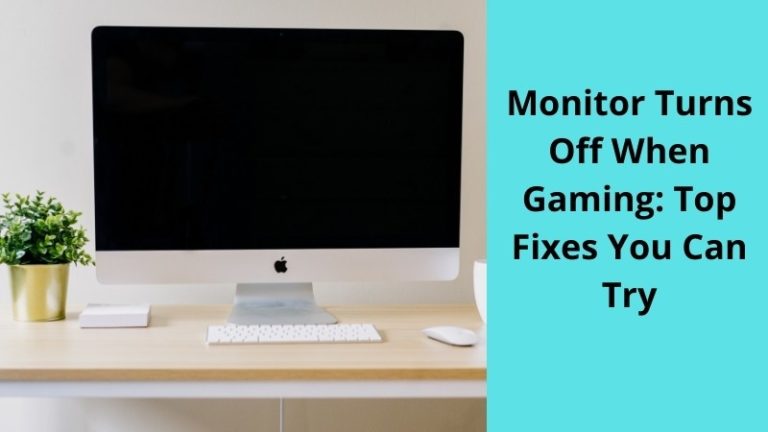You are in an intense gaming session, and suddenly when you are about to shoot your opponent, the monitor turns off. Only a gamer knows how irritating this can be, so if you have been wondering why your monitor turns off when playing games, you are at the correct place.
It is a prevalent condition that a variety of factors can cause. To remedy it, you must first understand the reasons. Then go over each issue one by one, trying to figure out what’s wrong and how to fix it.
So, today in this guide, we’ll go through all of the possible causes of your display turning off, as well as easy fixes for them.
Why Do Monitor Turns Off During Gaming
So a monitor can turn off during gaming due to many reasons. From our research, we have found five probable reasons for it. We will discuss all the reasons below.
1. Overheating
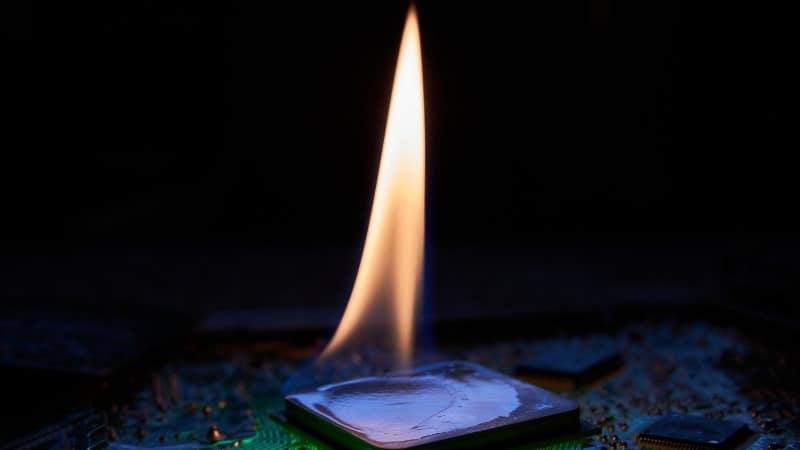
When a monitor overheats, it turns off immediately to prevent circuit damage. Excessive heat, dust collection, or outlet obstruction are all causes of overheating. It can also be due to old capacitors, as when capacitors become too old, they lose their power to hold a sufficient charge.
Most computer systems will shut down or freeze if they become overheated to protect the parts from being destroyed.
To diagnose the problem, you must pay attention to specific details, such as fan noise. When your computer’s temperature rises, the fan becomes very loud.
You may also employ other sorts of programs that supply information about systems. These will even display the temperature at which your gadget is operating.
2. Loose Cables
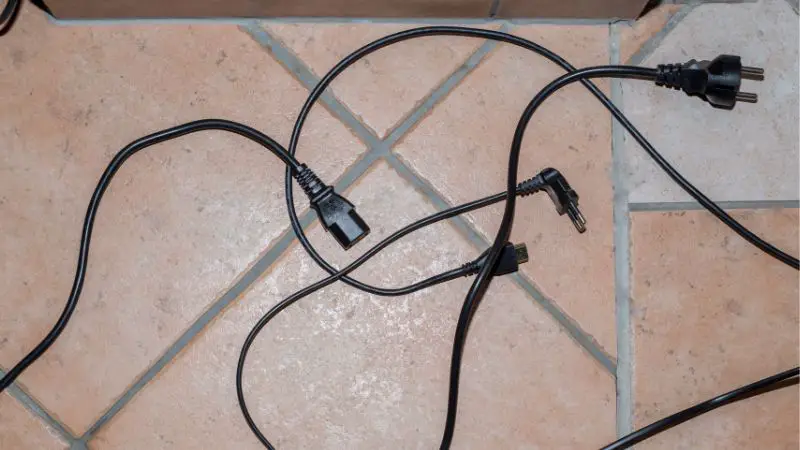
This monitor issue can sometimes be caused by negligence or a dumb thing. A loose display cable might be the cause of the monitor going off and on. If your monitor totally shuts down, the problem is most likely with your power cord.
Other cables like HDMI cables can also cause these issues. For connecting your accessories with the monitor, you may utilize a variety of cords.
As a result, this problem might be caused by the power connection or chord that connects the display to the socket. It generates power loss and causes the monitor to switch off if it is not correctly attached to the monitor’s back.
Cliff-hangers and strains in the monitor wires can cause damage, with signs evident at the ends. This can cause a signal to short-circuit, causing the screen to go dark.
3. Defective Power Supply Unit
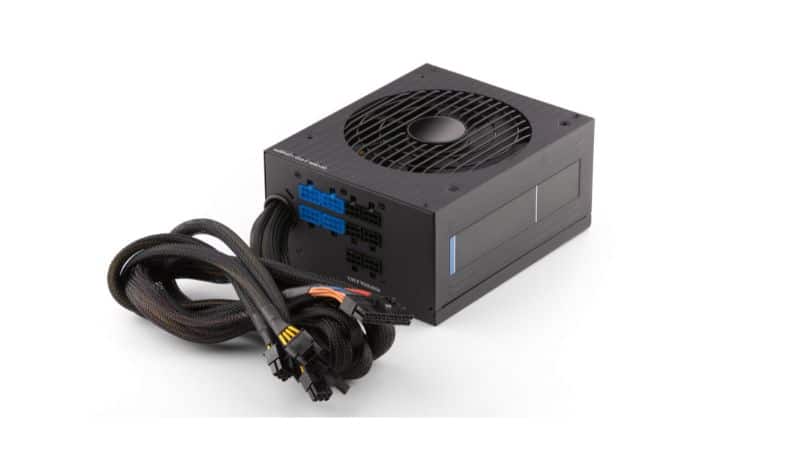
A defective power supply can be another reason for your computer monitor turning off during gaming. This device requires a voltage rating that your current power source may not be capable of handling.
Also, the power supply unit connections can be loose, causing the monitor to turn off frequently. Moreover, dust can accumulate on your fans in PSU, and it cannot cool off your power supply unit. So, it can turn off due to overheating, causing the monitor to turn off too.
4. Problematic Graphics Card

A malfunctioning GPU is another major cause of the display going off often. This is a regular occurrence when an external GPU card is dead or defective. To check for defective graphics or video cards, keep an eye on the system for a monitor problem.
You may see Generic PnP Display Error after turning on your monitor, which GPU also triggers. Another cause of your display shutting off while gaming is outdated drivers.
5. Energy Saver Mode
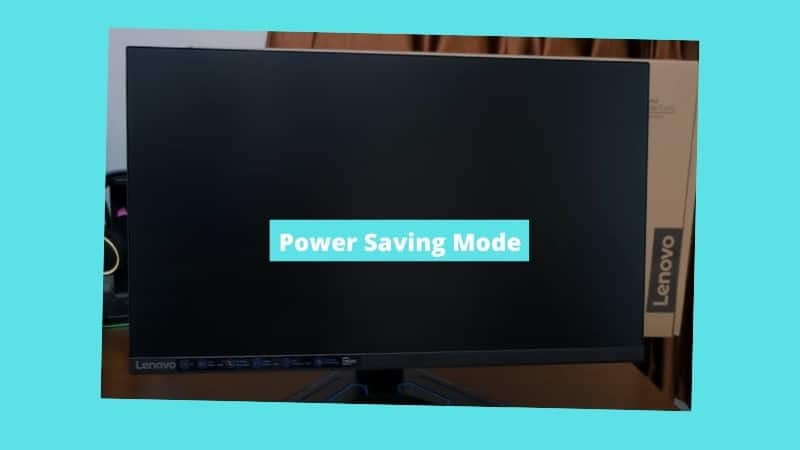
Sometimes when you turn on the energy saver mode on your computer, it can often cause your monitor to turn off often during gaming. This can also turn off your monitor even during other work.
5 Ways To Fix Monitor Turning Off While Gaming
So far, we have seen all the probable causes for your monitor shutting off during gaming. Fixing these issues is not that difficult, and you can easily solve them yourself. Hence, down below, we will discuss how we can fix all these reasons quickly.
1. Solving Overheating Issue
Before going deep with the problem, you will need to check some internal settings. Check whether you have done any overclocking if the temps do surpass the suggested ranges.
Furthermore, if you haven’t overclocked your machine, it may be having difficulties running the game. To solve this problem, delete these settings and restore them to default settings.
If the overheating issue still doesn’t get solved, then you will need to do some hardware fixes. Unplug the monitor and wait for it to cool fully before reconnecting it.
Also, make sure to clean all the vents in the monitor for any dust and debris. Doing this will ensure that air flows smoothly to cool the monitor.
By now, heating problems should be fixed on your monitor. However, if it still doesn’t get solved, then you will have to open the cooling system in your CPU. After that, you must wipe off its thermal paste and replace it with a new one. If necessary, add more fans to keep all of your internal hardware cool.
Here is a video on how to stop your computer from overheating.
2. Solving Issues With Loose Cables
Before checking the cables for damage, open them and plug them in again tightly. This should solve the monitor frequently turning off issue. However, if it doesn’t, then examine all of the connector cables for any breakage. Inspect it for bent pins, rips, and twisting marks if it is broken.
This should be quite straightforward to verify, and if the cable is damaged, you may replace it. Tangled HDMI cables can also cause these issues. As a result, you must ensure that your HDMI wires are not twisted.
Furthermore, consider purchasing an HDMI adaptor if your space is limited or your wire is too thick to bend adequately for connecting.
3. Solving power supply unit problems
To solve problems with the power supply unit, clean the fans using a strong air blower. If the problems don’t resolve, we suggest bringing a new and more powerful unit and checking if the monitor still turns off during gaming.
If this new PSU fixes the problem, it suggests the older power supply unit is the source of the problem. As a result, you’ll need to purchase a new and stronger power supply unit.
4. Fixing Graphics Card
If you use an old graphics card with older drivers, your computer monitor may turn off. You may accomplish this in two ways: manual and automatic.
You’ll need additional software to update drivers as updates become available if you want the automated method. It is fully automatic. However, follow the steps below if you’re going to use the manual process.
- Go to device manager from your taskbar
- Look for the display adapter node.
- Look for an option that says graphics or your graphics card name.
- Double-click the graphics or video card entry. The Properties dialogue box appears.
- Click Update Driver under the Driver tab.
The above steps will redirect you to the graphics card manufacturer’s website, and your update will start downloading automatically. Simply install it, and you are done.
Here’s a video on how you can update your graphics card driver.
5. Fixing Energy Saver Mode
Due to the energy-saving mode, fixing monitor turn-off problems can be solved very quickly. Make sure you follow the instructions outlined below.
- To enter the Run dialog box, hold down the Windows logo key and hit the R key. After that, type powercfg.cpl.
- When the Options widget appears, make sure Balanced or High Performance is chosen and click Change plan options.
- Set Click Apply after setting the display to Never.
Conclusion
There are many reasons for your monitor to turn off when gaming. However, solving these issues requires you to understand the problems before. Hence, today in this guide, we discussed all probable reasons for your monitor turning off frequently.
Make sure to detect the problems first and then follow our guide to find out the easy fixes. However, even after trying all these fixes, the monitor turning off a problem when gaming doesn’t get solved. You will, unfortunately, need to get a new monitor.

Hello Good People! This is Pavel and Welcome to PC Delight!
I’m an Electronics Engineer by profession with a passion for Gaming & PC builds. When I came up with the idea for PC Delight, it was my goal to share & offer the very best PC building ideas to tech-loving people like myself.
Since my school days, I’ve been just addicted to gaming & PCs. That leads me to experiment with various ways around the very niche, resulting in great productivity. And I’m here to share those practical experiences. So that next time you start some experiment with your PC builds or struggle to cope with a certain game, I’m here with the solutions. With these philosophies, I started my journey in 2017 and just kept going.
